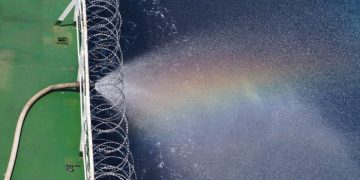Stronger rules and enforcement to protect beaches and marine environment are needed in the wake of new information that more than 360 oil spills have occurred in New Zealand waters since the 2011 Rena disaster, Green Party environment spokesperson Eugenie Sage stated.“With summer just around the corner, we need better ways of protecting the beaches and seas that are so important to Kiwi ways of life,” Green Party environment spokesperson Eugenie Sage said.“Every New Zealander has a birthright to swim in clean water, lie on clean sand, and catch fish that are safe to eat.“The fact that people and vessels have spilled nearly four tonnes of oil and fuel into New Zealand’s coastal waters, in 363 spills in the last four years, shows that the current system isn’t working. Stronger rules, enforcement, and response capability are needed.“The Green Party has a plan to protect beaches and the marine environment. Our plan includes through introducing compulsory shipping lanes like Norway and the UK have to reduce the risk of collision, improving Maritime New Zealand’s oil spill preparedness and response capability, holding people who spill oil financially accountable, and stopping risky deep sea oil drilling," said Ms Sage. Source: Green Party In the start, I was ...
Read more

























































